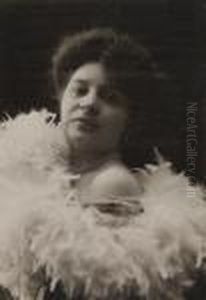Mario Nunes Vais Paintings
Mario Nunes Vais was an Italian photographer and artist, born in 1856 in Florence, Italy, and died in 1932. His life and work spanned a period of significant transition in the world of photography, moving from the traditional techniques of the 19th century to more innovative approaches in the early 20th century. Nunes Vais is particularly noted for his contributions to portrait photography and his role in documenting the cultural and social life of Italy during his lifetime.
From an early age, Nunes Vais showed a keen interest in the arts, but it was photography that captured his imagination and passion. In the late 19th century, he established his studio in Florence, which quickly became a rendezvous for the Italian elite and visitors from abroad. His portraits were renowned for their clarity, composition, and the ability to capture the essence of his subjects. Nunes Vais also ventured into landscape photography, capturing the beauty of the Italian countryside and its cities, thus contributing to the promotion of Italy as a tourist destination.
Throughout his career, Nunes Vais was deeply involved in the artistic community of Florence, engaging with contemporary movements and contributing to the evolution of photographic art. He was an active member of various cultural and artistic societies, which helped him stay at the forefront of the technological and stylistic developments in photography. His work was widely exhibited in Italy and abroad, earning him recognition and accolades.
Mario Nunes Vais's legacy is not only in the beautiful images he created but also in his influence on the generations of photographers that followed. His dedication to the art of photography, combined with his technical skill and artistic sensibility, made him a pivotal figure in the development of photographic practice in Italy. Today, his photographs are preserved in museums and private collections, serving as a testament to his talent and his contribution to the field of photography.
